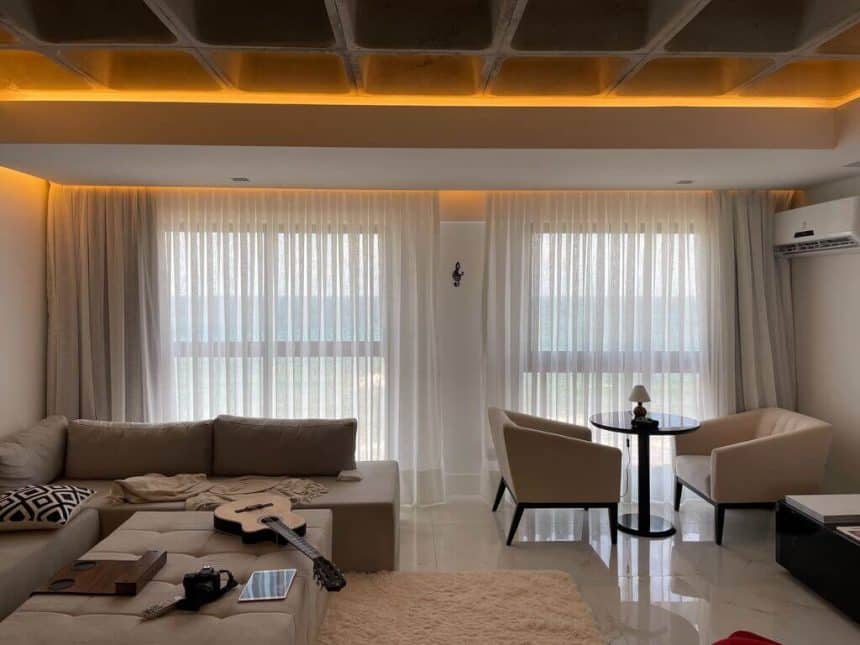Do you have an apartment, house, or studio for rent in Singapore? Airbnb is one of the most used property rental websites in Singapore. Listing your property on Airbnb in Singapore gives you access to a large audience looking for rental property in Singapore. How to list your property on Airbnb and whether Airbnb is legal or illegal in Singapore is explained below.
How to list your property on Airbnb in Singapore?
Singaporean citizens and foreigners can rent out their property in Singapore on Airbnb. Listing your property on Airbnb in Singapore is similar to that in other countries. Here’s a step-by-step guide:
- Create an Airbnb account: If you don’t already have one, sign up on the Airbnb website or app.
- Click on ‘Become a Host‘: This will guide you through the listing process.
- Provide property details: Describe your property, the number of guests it can accommodate, available amenities, and other relevant information. Include the house rules guests should follow during their stay as well.
- Upload high-quality photos: Ensure they accurately represent your property. Consider hiring a professional photographer for the best results.
- Set your price: Research the property rental prices in Singapore for similar listings in your area to determine the best pricing for your property.
- Understand the legalities: Before listing, familiarize yourself with Singapore’s regulations regarding short-term rentals.
- Set availability: Use the calendar feature to indicate when your property is available for bookings.
- Pay relevant taxes: Ensure you pay property rental tax in Singapore.
Is Airbnb legal in Singapore?
Airbnb is legal in Singapore, although the government has set specific regulations. While it’s technically not illegal to list your property on Airbnb in Singapore, the government imposes a minimum rental period of three months for non-landed private property and six months for Housing Development Board (HDB) flats. Besides that, HDB flats can’t be rented to tourists.
Do you want to list your private landed property or HDB flat on Airbnb in Singapore? That’s possible, but ensure you rent it out for at least three or six months.
Airbnb rules in Singapore
Here’s an overview of the Airbnb rules in Singapore for each property type:
- Private landed/residential properties: Short-term rentals of less than three months for private residential properties are illegal in Singapore. This includes condominiums and private apartments.
- Housing Development Board (HDB) flats: For HDB flats, short-term rentals under six months are not allowed in Singapore. Besides that, HDB flats can’t be rented to tourists.
- Serviced apartments: These come with amenities like a concierge and housekeeping services. They are allowed for short-term rentals but must adhere to a minimum stay duration as stipulated by the Urban Redevelopment Authority (URA).
- Hotels: Hotels can legally offer short-term stays in Singapore. They are licensed to provide lodging on a per-night basis.
The reason for the restrictions is the government’s primary concern for the security and privacy of residents. With high-density living conditions in Singapore, there’s heightened sensitivity about short-term guests.
Property owners who rent out their non-landed private property or HDB flat for short-term rental can get a penalty. There have been instances where Airbnb hosts in Singapore were fined for illegal short-term rentals. In 2018, two individuals were fined SGD 60,000 ($46,200) for illegally renting out their property for short-term stays. While hosts are not allowed to offer short-term rentals in Singapore, guests are not penalized for staying there.
Tips to generate more income on Airbnb in Singapore
How much money you can earn on Airbnb depends on different factors. However, whether you have a house, (serviced) apartment, studio, or flat, there are several things you can do to become the best Airbnb in Singapore and start generating more income:
- Optimize your listings: Use high-quality photos and provide a detailed description of your property in Singapore.
- Be responsive: Quickly respond to inquiries and reviews.
- Offer competitive rates: Regularly check the prices of similar Airbnb listings in your area.
- Provide extra amenities: Offer Wi-Fi, breakfast, or local travel tips to stand out.
- Maintain your property: Ensure your property is clean and well-maintained to get positive reviews.
Frequently Asked Questions (FAQs)
Are Airbnbs allowed in Singapore?
Yes, Airbnb is allowed in Singapore, but with restrictions on the minimum rental period. Although many people think Airbnb is illegal in Singapore or that Airbnb is banned in Singapore, in reality, Airbnb is allowed in Singapore.
Where can I list my property on Airbnb in Singapore?
You can list your property in Singapore on the Airbnb website or app by clicking here. Ensure you comply with local regulations before listing your property on Airbnb in Singapore.
Is Airbnb rental in Singapore profitable?
Yes, Airbnb rentals in Singapore can be profitable. How much money one can make with property rentals in Singapore varies based on location, property type, and property rental prices in Singapore. The rental property agent commission in Singapore also determines how profitable Airbnb rental in Singapore is.
Can foreigners rent out property in Singapore?
Foreigners can rent out property in Singapore but must follow the same regulations as Singaporean property owners. Foreigners must, like Singaporeans, pay property rental tax in Singapore when renting out their property.
Why is Airbnb illegal in Singapore?
Airbnb in Singapore is not illegal, but there are restrictions for short-term rentals on Airbnb. The government wants to protect the privacy and security of its residents.


